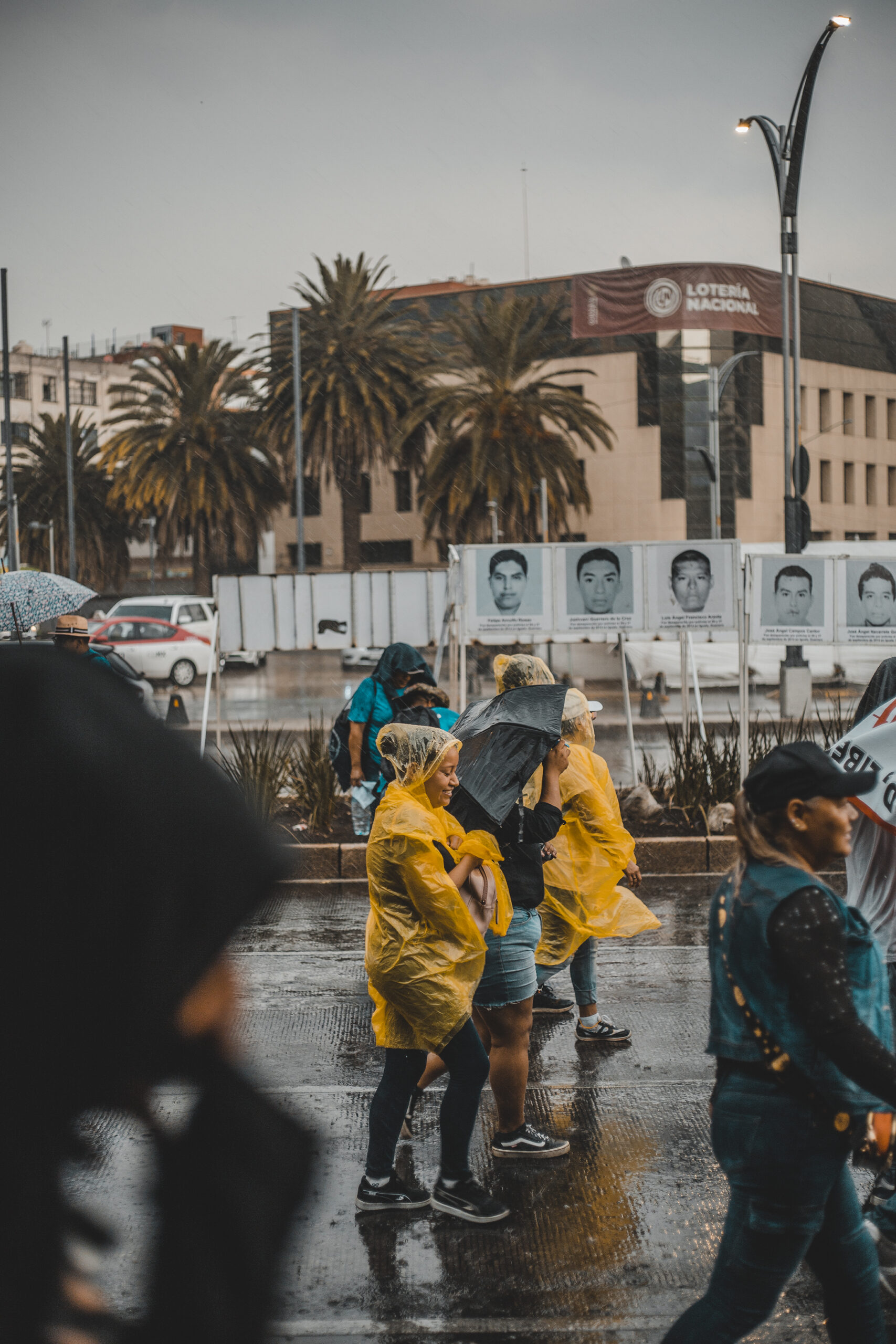What to do with Criticism?
This article originally appeared in the June 20, 2025 edition of Intervención y coyuntura, Revista de Teoría y Crítica Política. We encourage you to visit and support the journal. The views expressed in this article are the author’s own and do not necessarily reflect those of the Mexico Solidarity Project.
The Fourth Transformation advances in a turbulent world, trying to maintain a horizon in an era where, it seems, total disarray reigns. It is commonly said that if crises have one positive aspect, it’s that they reveal things as they really are, because when mediations fall away, so do masks. As Frantz Fanon said: white masks are the phenomenology of Western decadence. Therefore, we always think that, when masks fall away, people reveal themselves to the world as they really are. But what if the mask is one’s own face, if behind the mask there is only another mask, or there is nothing at all?
This seems to be the case with the current crisis of the capitalist system, where the widespread crisis of neoliberalism—precipitated by the global right itself (and not by the victory of leftist and progressive forces)—is the clearest sign of our times. Beneath the mask of colonial whiteness, we see only a cynical policy, advancing precisely on the structural flaws that the global left itself has. Therefore, the right has no qualms about saying and doing whatever it wants: after all, in the eyes of common sense, the left continues to fall into the same vices as the right. Thus, today’s political cynicism readily feeds on these structural flaws, and that is why, at summits like the G7, the least important thing is taking a position on armed conflicts, unhinged governments, or irrational and criminal expressions (Israel, Argentina, etc.) that are rife across the globe.
Against this larger global backdrop, which we can—and tend to—forget, arises the everyday life of the Mexican political process. While Mexican mini-despots dream of reproducing, from their smallness, this global cynicism, the left doesn’t seem to be any better: without falling into cynicism, it nurtures another evil that will have to be reconsidered: frivolity. While political cynicism survives thanks to the structural flaws of the left, the political frivolity of the left simply ignores the ills of society to wallow in its own desires.

There are several expressions of this frivolity within the left. Just to mention a few from the current political leadership, especially in MORENA, we have situations like that of the new president of the political party, who raises her salary immediately upon taking office, while at the same time her main proposal is to create a podcast. The street politics so often preached by AMLO and President Claudia Sheinbaum is increasingly replaced by the fiction of social media. The former president’s son becomes embroiled in arguments of rancid Oedipal lineages over his name. A histrionic activist is thrashed by a US official, unleashing a comedy of errors.
Let’s be honest: no one likes the current panorama of nepobabies. The forging of a young elite waiting to become “the elite,” wrapped in their banality, their photographs with officials, their small jobs, and the stylization of the new cherry-colored frivolity, tires us out, bores us, drives us crazy. While the nepobabies lose their way in frivolities, even Belinda seems to have a better understanding of the cultural effects of classism: “What kind of cats are those who wear Loro Piana. What kind of cats are those who only play golf. What kind of cats are those who drink Aperol.” It seems that the hipsterization of the left has abandoned itself to the fetishism of social media and the politics of the like.
Faced with this situation of boredom, one would like to look to other, more prosperous horizons, but what exists is no better: the Bolivian crisis, the Argentine persecution, the squandering of the Chilean experience, the catastrophic Colombian stalemate, the Peruvian and Ecuadorian tragedy. The frivolity of a very small part of the Mexican left should allow us to appreciate the importance of the inconsequential. That there is a frivolous elite in the making is undeniable, but if this is a fundamental political and social process—as it indeed is—it will itself become inconsequential. Let the nepobabys dream of tasting the honey of power, let them be frivolous and equivocal as they usually are. The political process is moving forward: for example, the judiciary, the last bulwark of the oligarchy, has collapsed, unleashing signs of mobilization (even when it is not always comfortable), one of the objectives sought.

Politics will always be the politics of the streets, and that’s where we must be the people, be with the people, making the people.
Fortunately, politics transcends the politics of training centers, which, while they contain thousands of valuable colleagues, are far from vying for positions and ephemeral prominence. Political reality always transcends the reality of social media and TikTok. Conceiving a politics for young people is good for lifting them out of apathy, but immersing them in the trap of screens is no better, especially because youth, like many things in life, is only a phase. Therefore, politics must always be thought of as universal, in any case, as transgenerational. Nor are politics about surnames, although some may transcend the immediacy of their moment. The politics of the contemporary world is that politics without faces, without surnames, without ancestry; it is the politics that is done in the streets, with and for the crowds, from the collective face and surname of the ordinary people. To put it another way: politics will always be the politics of the streets, and that is where we must be the people, be with the people, make the people.
Criticism is useful: it must be consolidated, directed, and accumulated, but politics is also knowing how to distinguish what is truly important from what, in the end, is inconsequential. Or as an Argentine friend would say, after learning of the ruling against [Argentinia’s former President] Cristina Fernández: “Don’t waste time criticizing petty things, because when the right wing returns, they’ll run over you.” It’s time for criticism, but for the criticism of the militant movement, the criticism of the people—because the people also speak. Let’s no longer allow the commentariat to pose the necessary questions and issues. Let’s return to the issues the country must be addressing. Only in this way will it be possible to put aside the frivolity and pettiness of a certain leftist movement. These are interesting times.
-
Let’s Talk About Migration: Trumpist Persection
Millions of women who have endured unspeakable violence on their migration journey are now being persecuted in the United States by an extremely xenophobic and misogynistic government, led by Donald Trump,
-
Culture | Labor | News Briefs
Workers Occupy Culture Secretariat, Demand 13% Wage Increase
2,000 workers have been receiving incomes below Mexico’s minimum wage for over two years.
-
People’s Mañanera March 2
President Sheinbaum’s daily press conference, with comments on electoral reform, the gradual move to a 40 hour workweek, employment, national security strategy, and once again, the call for peace.




